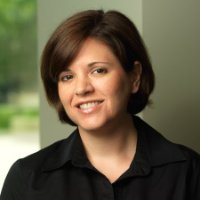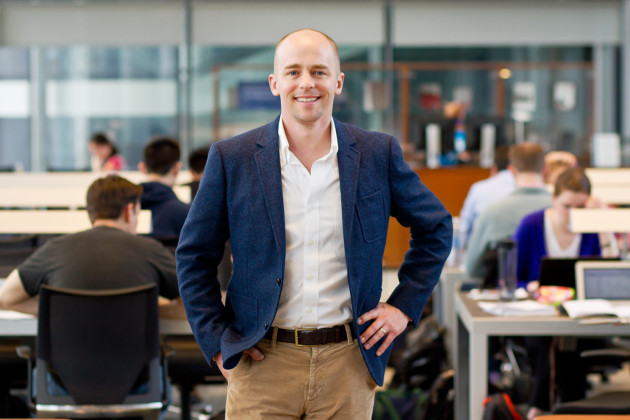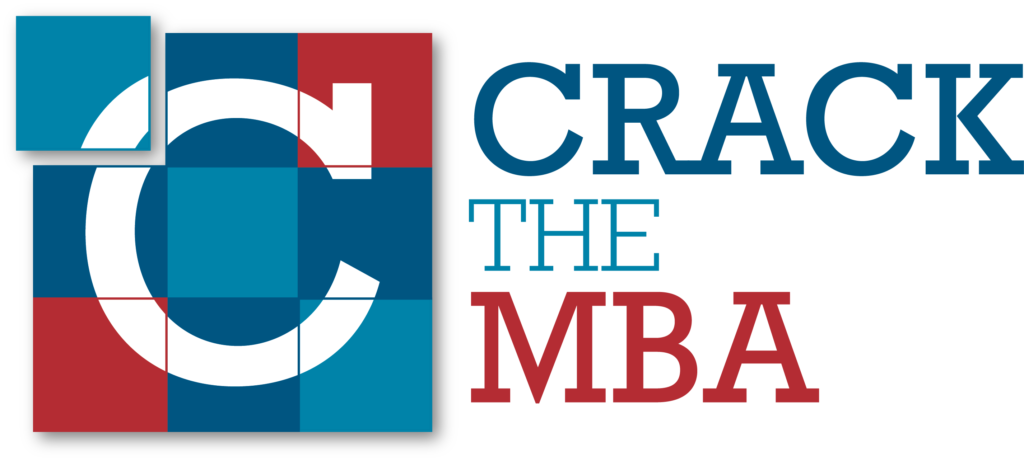Yale SOM’s latest move in its bid for No. 1 rank among business schools
This post has been written by Alina Benny (Intern) for Crack The MBA.
In 2008, Yale School of Management hit a new low with the abrupt departure of its Dean Joel Podolny three years into the job. Podolny, a graduate of Harvard University and a former faculty member at Stanford Graduate School of Business and Harvard Business School, left to join Apple. The position of Dean of Yale SOM had to be filled in by Sharon Oster.
At this juncture, Yale SOM pulled an unlikely coup by roping in Edward A. Snyder – Dean at University of Chicago’s Booth School. Snyder, often referred to as the business school turnaround specialist, has held deanships at University of Chicago’s Booth School and University of Virginia’s Darden School of Business.
While Snyder was at Michigan’s Ross School of Business, the school rose to No. 2 spot on the Business Week rankings. At Virginia, Darden reached No. 9 on BusinessWeek and from a No. 10 position in 2001, Booth moved to No. 1 in 2006 and still holds that position.
During Snyder’s tenure, Chicago’s endowment grew from $197M to $475M and that excludes a $300M gift – the largest gift to an American business school – from David Booth of Dimensional Fund Advisors to the school.
At Yale SOM, “offering unparalleled access to expertise” has been Yale SOM’s Dean Edward A. Snyder’s mantra. He wants nothing short of the best on his team to produce leaders for business and society.
Notable Recent Recruits at Yale SOM
Joanne Legler

Joanne Legler
Senior Associate Director of Admissions
Yale SOM
Joanne Legler is the latest addition to the ever-growing list of administrators and faculty members at SOM over the past few years. Joanne was the former Senior Associate Director of Admissions at University of Chicago Booth School of Business and joined Yale SOM in April with the same designation.
It is after a stint as Residence Hall Director at Towson University, Maryland and four years as Assistant Director of Admissions at Franklin & Marshall College in Lancaster, Pennsylvania that Joanne joined Booth as Associate Director of Admissions in 2006. For over seven years she oversaw the Dean’s Student Admissions Committee (DSAC), first as associate director and later in July 2013 as senior associate director. Legler received her Bachelor’s degree from Hamilton College in 1997 and her M.Ed. in Student Affairs from University of Delaware in 2001.
Passionate about women’s initiatives, the Chicago Women in Business Alumnae Network (CWIBAN) was a group Joanne connected with at Booth. Now after Forté Foundation’s Leadership Conference in Los Angeles last month and the interaction with the class of 2016, she’s excited to meet the next batch. “This isn’t my first rodeo in the MBA admissions arena,” says this Yankees aficionado, now that she is back on the East Coast closer to home.
The landscape at Yale may have been all the more welcoming to Legler, considering that she had worked with Dean Snyder and Career Development Office Director Julia Zupko during their tenure at Booth. Some of her favorite parts of work, she describes, is traveling to meet prospective MBA students and introducing them to Yale SOM. Her traveling escapades have taken her to France, Costa Rica, England, Spain and this August, would have, hopefully taken her to India as well.
Vice Dean – Anjani Jain moved to Yale on July 1 2012 and this was after 26 years at Wharton. For almost a decade (2000 to 2010) he served as Vice Dean and Director of Wharton’s Graduate Division and then as Vice Dean of Wharton’s MBA Program for Executives from 2010 to 2012. At Wharton he taught courses in Operations Management and Management Sciences at the MBA, PhD and undergraduate levels. He has also taught courses at the Hebrew University in Jerusalem, the Interdisciplinary Center in Herzliya and the Indian School of Business in Hyderabad and Mohali. He is an MBA from the Indian Institute of Management, Ahmedabad, and a PhD in Operations Research from the University of California, Los Angeles.
Senior Associate Dean for Executive MBA and Global Programs – David Bach is also a senior lecturer in Global Businesses and Politics at Yale and Adjunct Professor of Strategic Management at IE Business School. Business-government relations, nonmarket strategy and regulation of financial markets are some areas that he teaches and he has published work in the Sloan Management Review, the Financial Times, Harvard Business Review, BizEd, Forbes India, Business Strategy Review, and the Conference Board Review. He spearheads the GNAM course. Prior to joining Yale in the summer of 2012, he was the dean of programs at IE and also the academic director of the IE Brown Executive MBA. Twice named as “one to watch” by the Thinkers 50, he was also awarded the “Best Professor” prize in 2007 at IE. He has an MA and PhD in Political Science from Berkeley.
Determined to leverage the school’s formidable brand with his new entourage, Snyder said, “Yale SOM has the potential to become a truly global business school, resulting in more academic and professional opportunities for students and alumni. Having Anjani and David join Yale SOM at this promising juncture is an exciting development.”
Assistant Dean and Director, Career Development Office – Julia Zupko was chosen for her experience in career services across various sectors in Booth. She replaced Ivan Kerbel as the head of the career development office after she stepped down as director of operations at Booth. With experience directing Booth’s career operations at Singapore and London, her expertise comes in handy at building partnerships with international business schools. Be it in finance, consulting, non-profit or in the public sector, the SOM students have diverse choices after their graduation. Zupko’s 12 years with the CDO at Booth makes her invaluable at not only catering to these varied expectations from the CDO but also providing individualized counseling and bringing in recruiters to the campus considering that the SOM had difficulty doing so battling the misperception that it was a small, communal school of non-profit management, steeped in theory.
Has the CDO been successful in helping students navigate a challenging job-market? “Yale SOM weathers shifts in the economy well because students pursue their passions and we don’t see a “herd effect.” Since we teach career skills for life, understanding fluctuations in the economy and the related effects on your risk level and job search strategy are incorporated into our programming,” she says. Fostering constant dialogue with the student body to ensure career development with the concomitant development in the relationships with employers has been her top priority.
Yale’s penchant for experienced faculty is evident from its recent appointments. Be it Snyder, Legler, Zupko, Bach or Jain. None of them fall short on expertise or insight gained from working in varied sectors. Under-funded, under-marketed, not up to speed on globalization – this was Yale two years ago. But with top talents from diverse backgrounds as faculty, Yale may not sit at spot no. 13 in the US News ranking for much longer. These rankings based on peer assessments, recruiter assessments, placement success, mean starting salary and bonus, average GMAT scores and GPA, shall definitely see some ripples from Yale if it continues to persevere and establish itself as a global brand.
Yale SOM: On Track To Be The No. 1 Business School in the World?
Yale is ranked No. 13 in U.S. News Rankings, No. 10 in Financial Times’ Global MBA Rankings and No. 21 in Business Week’s U.S.-based rankings. Notably, Yale SOM has made tremendous strides in Financial Times’ Global Rankings as its three-year rank is No. 15.
When he accepted deanship three years ago, Dean Snyder made a firm decision to bring Yale SOM to the top and the latest developments send a clear message out to the world, “Challenge accepted!” In addition to the personnel changes listed above, Yale SOM has made numerous other moves in the past few years that position it as a serious contender in this race towards the No. 1 rank in business school rankings.
The Infrastructure – Edward P. Evans Hall

Edward P. Evans Hall
New Home of Yale’s MBA Program
The Edward P. Evans Hall is the home of the Yale SOM and a 242,000 square feet concrete wonder. It was designed by Foster + Partners and opened in January 2014. All of the SOM’s departments are at a single location with the glass façade providing a lot more transparency than the traditional college courtyard. This structure with its 16 double-height oval drums that surround a central courtyard, was developed in close collaboration with the faculty members. Most of its communal zones are on the ground level; the common room, coffee shop and media library. The classrooms are custom made for Yale’s courses encouraging team-based learning, discussions “in the round” and video conferencing.
“As a former student, it is a very special honor to design a building for Yale’s campus, to stand alongside architecture by such luminaries as Paul Rudolph and Louis Kahn. Learning is not only about the classroom – it is about the social spaces, grounds, cafes and the relationships that are formed. the people that I was exposed to at Yale, and the collegiate style of working that I found there, have influenced the way that I have built my own practice – our London studios, like those at Yale during term time, are open twenty four hours, seven days a week. This philosophy of hard work and collaboration – both fundamental to leadership – has informed the design of the Edward P. Evans Hall. I hope that it will provide an uplifting place to study, which can inspire future generations of business leaders.” – Lord Norman Foster (Alum of Yale School of Architecture)
Integrated Curriculum
Yale’s curriculum is structured in such a way that a student is able to grasp the depth and breadth of the knowledge that the course offers. As contradictory as this may seem, their integrated curriculum that covers the fundamentals of management with emphasis on the complexity of contexts makes this viable. This “complexity of contexts” is illustrated with extensive data, videos and interviews of a hypothetical case aka a “raw case”. A raw case is a departure from the typical case study, which is the founding pillar of education at Harvard Business School. The premise behind the raw case is that in the real world, information is not crystallized in a 10-15 page summary document and presented in a linear format. Information is available at different places and it is up to managers to focus on the right information while making decisions.
To Be “Distinctively Global”
Yale SOM’s curriculum has been so engineered to navigate a global market wrought by fast paced technology and interconnectedness of ideas and manpower. The “Global Network for Advanced Management” course enables an MBA to understand the dynamics of a business in local or international contexts. This course presently has a network of 27 member schools across the world.
Inclusive Business Models by the Indian Institute of Management Bangalore (IIMB) scheduled to begin in September 2014 and Handling Disruption: Humanitarian Emergencies Management and Development, from the London School of Economics and Political Science that starts in January 2015 are the two new additions to the Global Network Courses. Sourav Mukherji, an associate professor of organization and strategy at IIMB says, “This class will provide students with a rich understanding of India and the context of emerging nations.”
It’s not just the students who learn how to operate in global organizations, the SOM, under the GNAM program aims to globalize the school and thereby engage corporate partners more deeply. “It’s a big deal for us in terms of globalizing the school. We’ve made it hard for companies to be involved over the years.” Said Snyder, “Part of this is to develop a network of corporate partners as well.” He believes that typical partnerships with business schools, given their bilateral nature, make globalization more of a hefty challenge than an opportunity to create robust networks globally.
The Yale School of Forestry & Environmental Studies (F&ES), the Yale School of Management (SOM), and the World Business Council for Sustainable Development (WBCSD) announced a partnership to tackle global sustainability issues, this April. This partnership will foster interaction between the students and the WBCSD network ultimately inspiring business practices in-line with GNAM’s objectives. Peter Bakker, president of WBCSD said, “We’re partnering with Yale University to better leverage the worlds of science and management schools to scale up ideas and create new ways of approaching how business can positively contribute to a sustainable future.”
Another initiative to expose students to global diversity is the Pre-MBA Leadership Program. This two-week program for university second, third, and fourth year students and recent graduates serves as an introduction to the benefits of an MBA degree. The 2014 summer program was held from June 15-28.
Involvement with its parent, eminent and purposeful, Yale University.
Beijing and New Haven can now engage in meaningful dialogue that the SOM has decided to launch and operate a center in Beijing to host leadership programming by schools from across Yale University. This announcement made last month not only underscores the far-reaching relationship with China but also broad-based discussions with businesspeople, entrepreneurs and public leaders on diverse issues, including improving health outcomes, environmental challenges, the increasing importance of creative arts and managing financial assets. This center will function as Yale’s only center in China and host programming for the entire university. A donation of $16M from two alumni and a friend of the school, Neil Shen, founding managing partner of Sequoia Capital China; Bob Xiaoping Xu, founding partner of ZhenFund.com; and Brad Huang, founder of Lotus Capital Management respectively funded the construction of the center.
Its inaugural conference will be held on October 26 and 27 along with Yale SOM’s Chief Executive Leadership Institute or CELI’s fourth China CEO Summit. “Both the center’s opening conference and the CEO Summit in October demonstrate Yale’s distinctive intellectual and cultural strengths across sectors and regions drawing upon Yale’s 175 years of contributing to China’s economic development,” said Jeffrey A. Sonnenfeld, SOM’s senior associate dean for executive programs.
A Formal Entrepreneurship Program

Kyle Jensen
Newly Appointed Director of Entrepreneurial Programs, Yale SOM
Photo by Henry Ehrenberg
With expanded course offerings and enhanced recruitment of entrepreneurial faculty and students, Yale SOM launched a formal Entrepreneurship Program last April and also appointed a new director of entrepreneurial programs and pledged new scholarships and financial support for its students. Kyle Jensen, PhD, was appointed the director of Entrepreneurial Programs and lecturer in entrepreneurship on April 17, 2014. His official duty shall commence on July 1, 2014 and will complement the work of the Yale Entrepreneurial Institute (YEI).
“Yale SOM’s unique integrated core is the perfect foundation for anyone looking to start a new venture, and we have observed increasing numbers of our graduates starting their own businesses in recent years,” Anjani Jain said. “Our curriculum ensures that our students not only acquire essential business competencies, like building high-performance teams and managing assets and cash flow, but also understand how every important decision affects the entire organization and the environment within which it operates.”
At a sold-out event on May 9 at the first Yale Entrepreneurs and Investors Conference in San Francisco, staff and graduates made presentations on how the university is encouraging startups on campus and around the country, and the ways in which the alumni network can help encourage entrepreneurship. “Technology doesn’t drive innovation. People drive innovation,” said Lori Goler ’91, Facebook’s Vice President of Human Resources, who spoke at the event.



